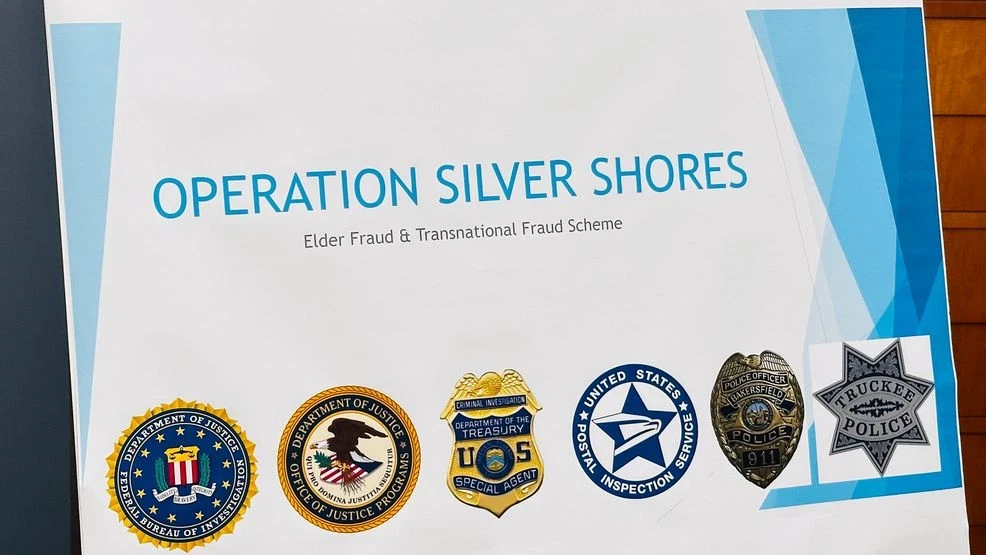
October 21, 2025, Washington, D.C. / Sacramento, CA "Operation Silver Shores" has led to a lot of arrests and charges by the U.S. Department of Justice. This is a global network of fraud and money laundering that took more than $30 million from hundreds of victims in the U.S., Canada, and Asia.
The DOJ's press statement for the Eastern District of California notes that 22 people were charged with planning to commit money laundering and wire fraud. In 2025, this was one of the most organised government efforts in the world to stop financial crime against older people.
How Big the Scam Is
Losing more than $30 million
Victims: At least 372 persons have been found, and most of them are older, retired folks from different parts of the U.S.
Asset Recovery: So far, cars, bank accounts, and bitcoin wallets totalling more than $1.5 million have been taken.
Police in Nigeria, India, and the Philippines helped catch 14 people in the U.S. and 8 more who assisted them in other countries.
The scammers used fake investment websites, call centres, and tech-support return schemes to get victims to send them money. After that, they employed hard-to-make transfers between nations to clean the money.
([Sources: KMPH Fresno Local Coverage, DOJ Press Release, Eastern District of California])
How the Network Worked
Investigators discovered a three-tier framework for money laundering employed to conceal funds and facilitate their movement via legitimate banking systems:
Mule Networks (Domestic Layer):
A lot of the folks who worked with recruiters in the U.S. didn't even know they were doing it. They paid them to open personal and business accounts.
Mules stole money and then transmitted it to accounts in other countries or took it out using big remitters.
Checks from a cashier and layered transfers (bank layer):
The money was changed into cashier's checks or money orders worth less than $10,000 to evade Currency Transaction Reports (CTR).
More than 40 bank accounts in California, Texas, and New York were implicated in the transfers.
Digital Layer: Crypto and ways to send money
Some of the money went to exchanges in other nations' Bitcoin and Tether (USDT) wallets.
Scammers used mobile money transfer apps like Remitly, Wise, and Payoneer to send small quantities of money that were less than what the government allowed.
Phillip A. Talbert, the U.S. Attorney for the DOJ Eastern District of California, said, "The Silver Shores network took advantage of older victims through fake investments and tech support scams, turning stolen money into crypto and cashier's checks in just a few hours."
([Sources: DOJ.gov, KMPH Fresno, FinCEN AML Case Files 2025])
⚖️ Fines and fees
The principal charges are conspiracy to commit wire fraud (18 U.S.C. § 1349) and money laundering (18 U.S.C. § 1956).
The harshest punishments are:
If you commit wire fraud, you might go to jail for up to 30 years.
If you are found guilty of money laundering, you might spend up to 20 years in prison.
Returning stolen property and paying victims back
The DOJ noted that there are a lot of defendants in this case who are working together. It is part of a wider campaign to curb "transnational elder fraud and cyber laundering."
Things to Watch Out For in Banks and Fintechs
The way the organisation is set up makes it easier for money-mule networks and digital payment channels to expand. This case teaches banks and fintechs a few essential things:






